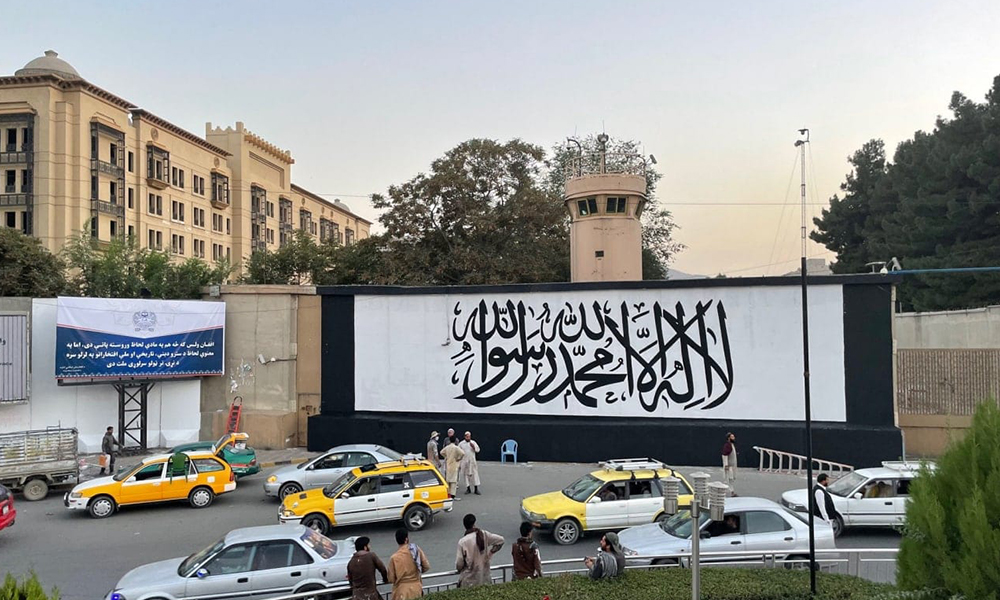Latest News
IEA says they are committed to ensuring the rights of all people

The UN Under-Secretary-General for Afghanistan (UNAMA) has met with some women rights activists in Kabul and said human rights should not be restricted in the country.
The Islamic Emirate of Afghanistan (IEA) meanwhile says they are committed to ensuring the rights of all people.
“The Taliban (IEA) have a responsibility to ensure that Afghanistan is a country where human rights are guaranteed equally to all,” said Mette Knudsen, UNAMA Deputy Special Representative for Afghanistan.
Hada Khamosh, a women’s rights activist, said that during the meeting, they shared their concerns about restrictions on women, the media and freedom of expression, and the alleged “killing of former Afghan security forces” by IEA forces.
Following their takeover of Kabul, the IEA pledged to respect the rights of women and girls in accordance with Islamic law and announced a “general amnesty” for all former government employees.
But human rights activists fear that women and girls may be barred from work and education, as in the previous IEA regime.
Meanwhile, IEA’s Deputy Spokesman Inamullah Samangani told reporters on Tuesday that they were committed to providing employment and training for both men and women.
Samangani added that the group’s government was working to create “conditions” for education and employment for all Afghans, including women.
Samangani said that the IEA’s government is working to create “education and training conditions” for all Afghans, including women.
The IEA reopened boys’ schools on September 17, but did not allow girls in grades six and up to attend.
However, the IEA has insisted that before the girls return, they are preparing instructions to create a “safe learning environment” for them, according to Islamic law.
Under the IEA from 1996 to 2001, women were largely denied the right to work and study and were usually forced to cover their faces and accompany a Muharram when leaving home.
Earlier, the United Nations expressed concern about the human rights situation in Afghanistan, and UN officials said that if the achievements of the past two decades were to be preserved in the country, the human rights and dignity of all Afghans must be upheld for women and girls, be protected and respected.
Latest News
Girls’ education is a ‘vital issue’ for Afghanistan: Karzai

Former president Hamid Karzai said in a meeting with Iran’s ambassador and special representative, Hassan Kazemi Qomi, that education of girls was a “vital issue” for Afghanistan.
Karzai said he appreciated Iran’s cooperation and its standing with the Afghan people, especially Iran’s contributions to education in Afghanistan.
During the meeting, Karzai said peace and stability in the region are in the interest of all regional countries.
Latest News
Uzbekistan’s humanitarian aid arrives in Balkh

A shipment of humanitarian aid from Uzbekistan was handed over on Thursday to the local officials of Balkh province in the trade port of Hairatan.
Local authorities said the aid, which includes flour, oil, wheat, sugar and meat, has been handed over by Uzbekistan’s Surkhandarya governor to the governor of Balkh.
The governor of Surkhandarya stated the purpose of sending this aid was to support the people of Afghanistan and stressed the need for the development of good relations between the two countries.
Latest News
Afghanistan’s problems caused more damage to Pakistan than 3 wars with India: Durrani

Islamabad’s special envoy for Afghanistan Asif Durrani said on Wednesday that Pakistan has suffered more due to Afghanistan’s internal situation than Pakistan has suffered in three wars with India in terms of blood spilt and finances drained.
Durrani said at a one-day International Conference titled “Pakistan in the Emerging Geopolitical Landscape”, which was organized by the Institute of Strategic Studies Islamabad (ISSI) and the German Friedrich Ebert Stiftung (FES), that over 80,000 Pakistanis died in the two decades of the War on Terror and that his country was still counting its dead and injured.
“After the withdrawal of NATO forces, it was hoped that peace in Afghanistan would bring peace to the region. However, such expectations were short-lived,” he said.
He also stated that attacks by the Tehreek-e-Taliban Pakistan (TTP) militant group on Pakistan’s border areas increased by 65 percent, while suicide attacks increased by 500 percent.
“The TTP’s enhanced attacks on Pakistan while using Afghan soil have been a serious concern for Pakistan. Another worrying aspect is the participation of Afghan nationals in these attacks,” he said.
Durrani also said Pakistan had suffered geopolitically since the Soviet Union invaded the neighboring country.
“The post-9/11 world order has negatively impacted Pakistan. Apart from losing 80,000 citizens’ lives, including 8,000 law enforcement agency personnel, the country’s economic opportunity cost is estimated at $150 billion,” Durrani said.
Talking about the future outlook for Pakistan in the regional context, Durrani said that while “our eastern neighbor is likely to continue with its anti-Pakistan pursuits, the western border poses an avoidable irritant in the short to medium term.”
However, he said Pakistan can overcome its difficulties with Afghanistan, including the TTP challenge.
-

 Latest News5 days ago
Latest News5 days agoPakistan’s frontiers minister stresses ‘dignified’ return of Afghan refugees
-

 Latest News3 days ago
Latest News3 days agoRashid Khan named AWCC’s brand ambassador
-

 Regional4 days ago
Regional4 days agoIranian president lands in Pakistan for three-day visit to mend ties
-

 Climate Change4 days ago
Climate Change4 days agoMassive river flooding expected in China, threatening millions
-

 Latest News5 days ago
Latest News5 days agoChinese keen to invest in Panjshir-Kabul water conduit project
-

 World5 days ago
World5 days agoTwo Japan navy helicopters crash, one body found, 7 missing
-

 Sport4 days ago
Sport4 days agoKolkata beat Bengaluru by one run in IPL as Kohli fumes at dismissal
-

 Sport4 days ago
Sport4 days agoACL: Aino Mina 3-0 Istiqlal Kabul; Attack Energy 3-0 Khadim
























